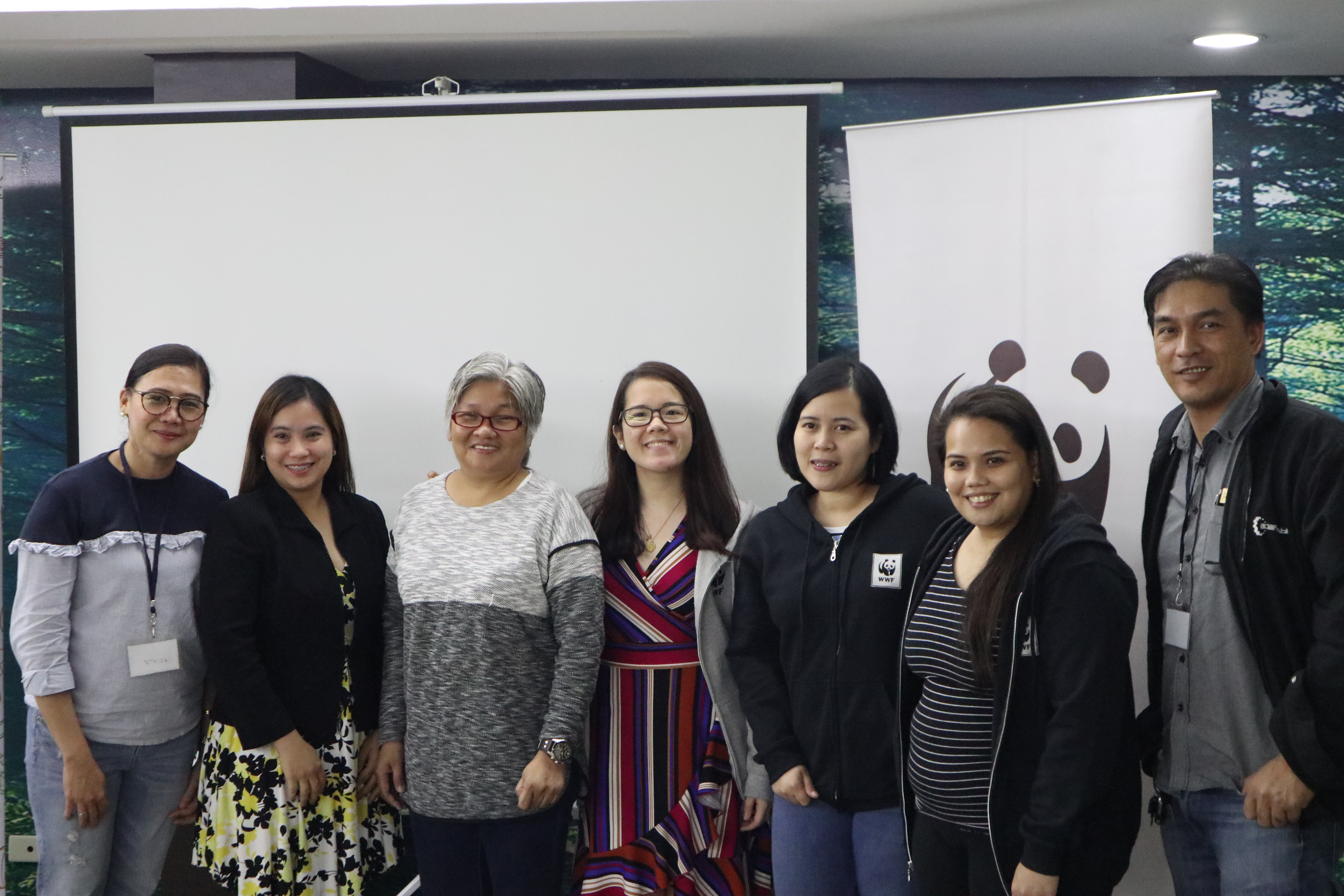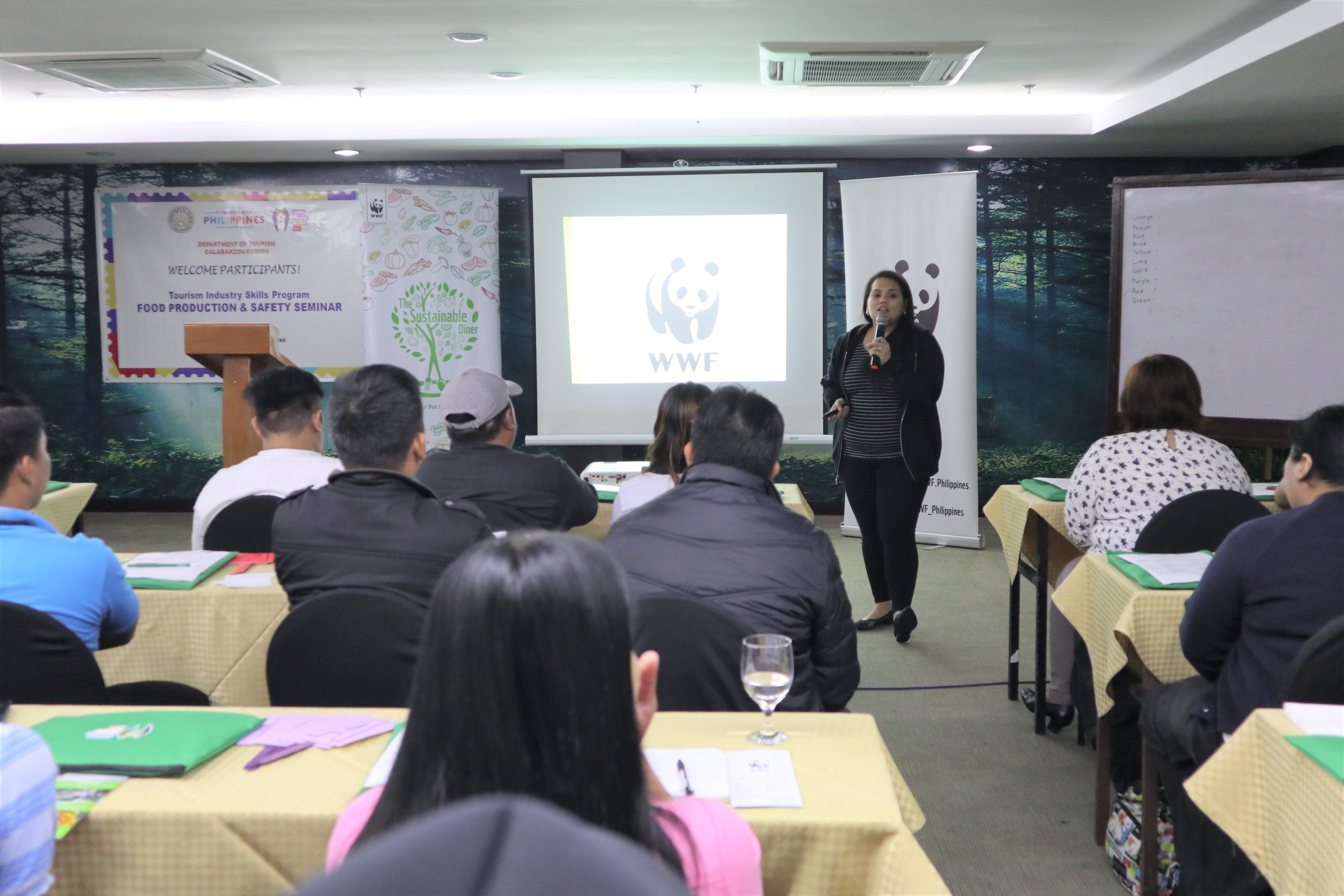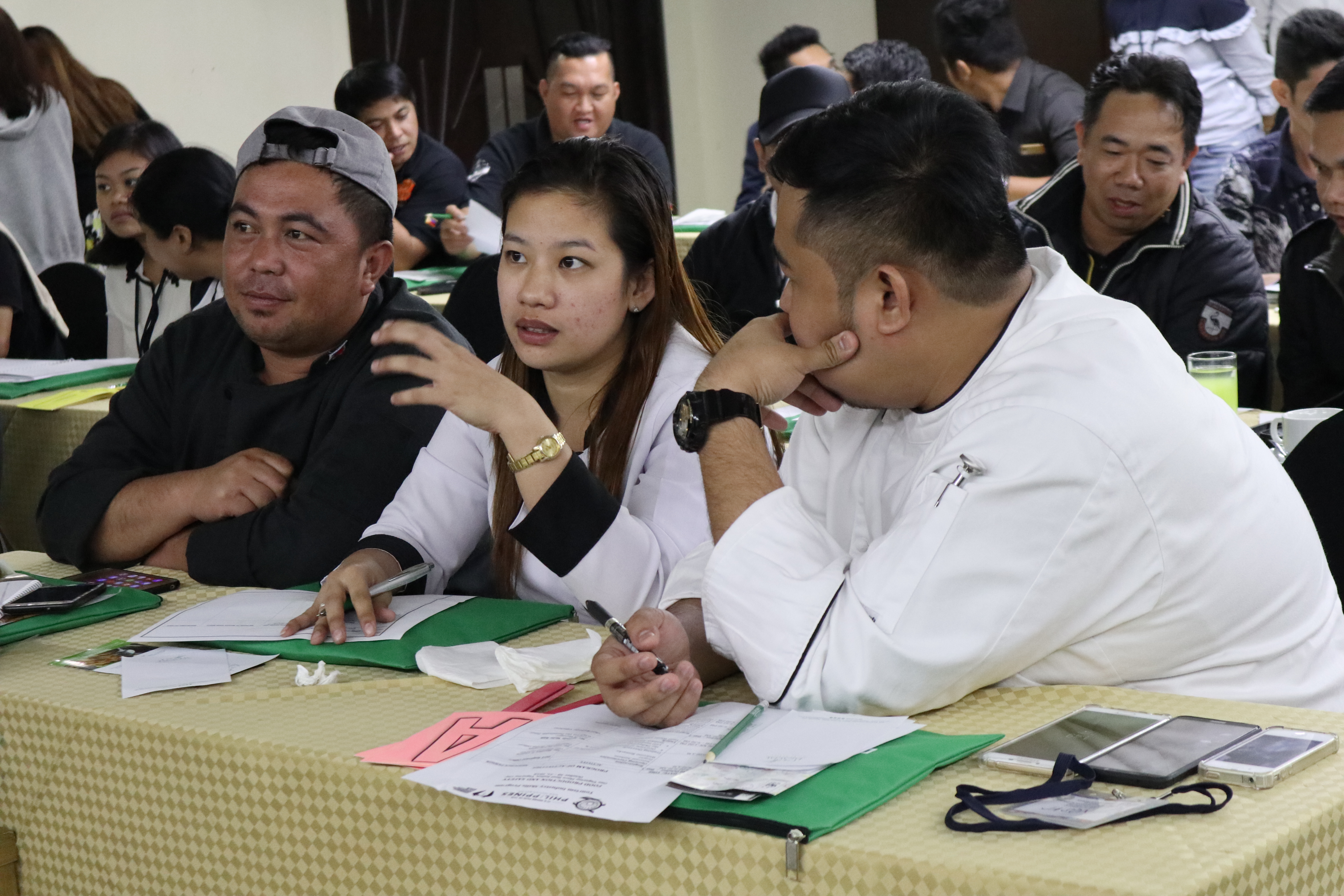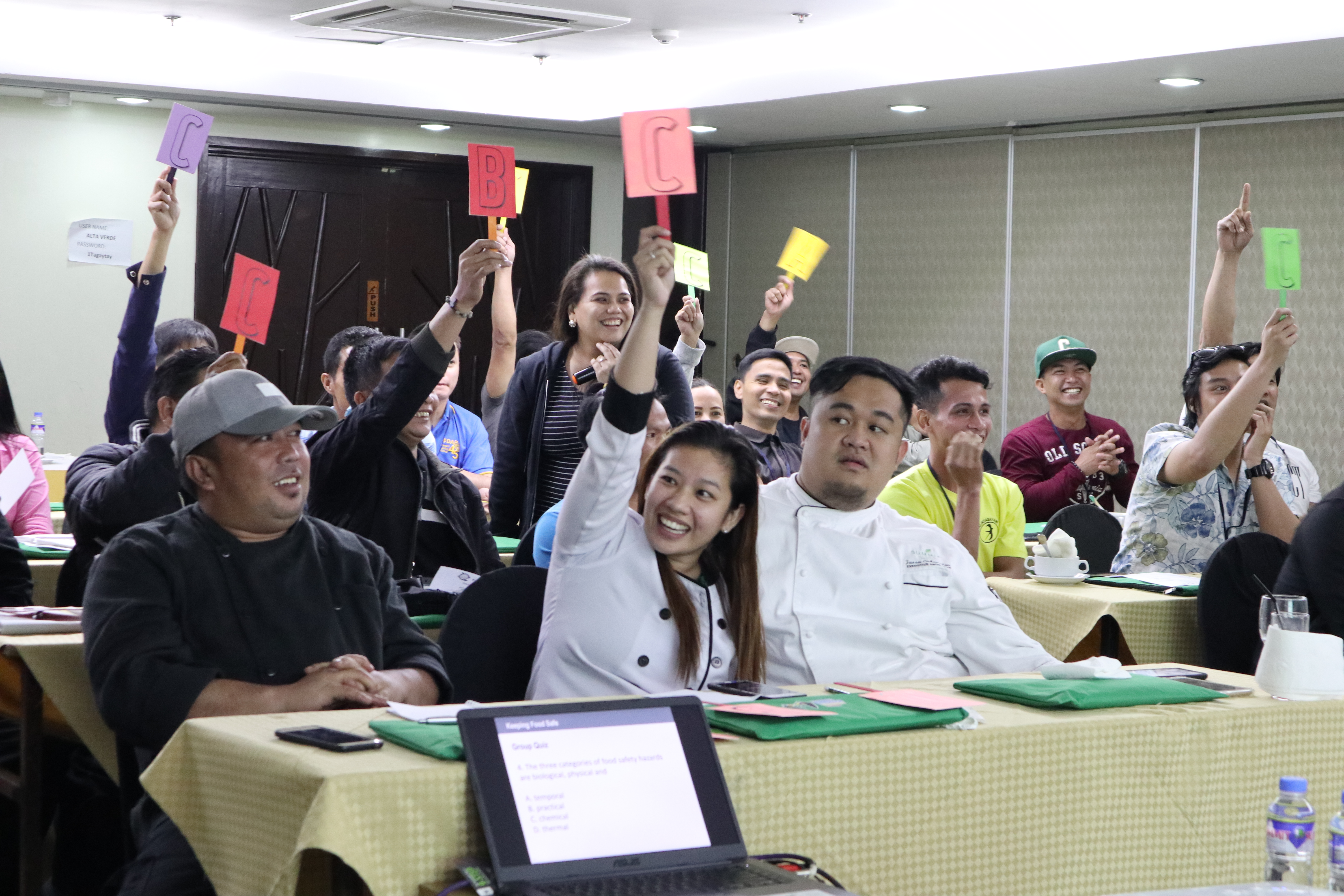WWF-Philippines Conducts Food Training and Food Handling Training for the Department of Tourism Region IV-A
October 2018

The Sustainable Diner project team of WWF-Philippines with Cristy Alcantara (President, Tagaytay Tourism Council), Karen May Bartolome (Project Officer, DOT Region IV-A), Leilani Diesta (Former Tagaytay Tourism Chief, Tagaytay City LGU), and William Delas Alas (Operations Manager, D’Banquet Bakeshop and Restaurant). Photo © Gabriel Villalon / WWF-Philippines
Last October 30, 2018, World Wide Fund for Nature (WWF) Philippines’ The Sustainable Diner: A Key Ingredient for Sustainable Tourism project was invited for a Food Waste Management, Basic Food Safety, and Food Handling Training for Tagaytay City-based restaurants.This was organized by the Department of Tourism Region IV-A (CALABARZON) in coordination with the Tagaytay Tourism Council. Held at One Tagaytay Place, the activity was a part of a series of annual trainings and seminars provided by the DOT for their regional constituents, which in this case consists of representatives from restaurants and hotels in Tagaytay City. The food waste management initiative is originally led by WWF US, in collaboration with the American Hotel and Lodging Association (AHLA), with the generous support from the Rockefeller Foundation.

WWF Project Manager for Sustainable Consumption and Production in the Philippines, Melody Melo-Rijk, conducted the Food Safety and Food Handling training. Photo © Gabriel Villalon / WWF-Philippines
Melody Melo-Rijk, WWF’s Project Manager for Sustainable Consumption and Production in the Philippines, started the training by introducing The Sustainable Diner project to the 40+ participants as well as the Food Waste Management training in its entirety - how it was conceptualized, applied previously, and implemented in different countries and in some hotels in the Philippines. The Food Waste Management training aims to bring together different representatives from the hospitality and food service sector to improve the implementation of strategies geared towards the reduction of food waste.

Participants discussing the food safety and handling module with their respective groupmates. Photo © Gabriel Villalon / WWF-Philippines
By undergoing the Basic Food Safety and Handling training, the participants are expected to be able to identify what a foodborne illness is, when a foodborne-illness outbreak has occurred, the five risk factors for foodborne illness, and the populations that have a higher risk for foodborne illness. They were also equipped with the right knowledge for them to be able to identify ready-to-eat food and TCS (Temperature Controlled for Safety) food. The competitive side of the participants surfaced during the interactive quiz session, where their foodservice know-how was put to the test. The interactive quiz served as a way to creatively engage the stakeholders and to gauge their understanding of the topic.

Competitive participants battling to be the first group to correctly answer a question during the interactive quiz session. Photo © Gabriel Villalon / WWF-Philippines
Through the training session, key tourism stakeholders of Tagaytay City were able to understand the importance of proper food safety and handling from the ServSafe lens and how crucial this is in reducing food waste and unnecessary food expenditures in their hotels and restaurants. The participants were also given ample time to discuss specific challenges they are facing in keeping their operations sustainable as well as share best practices with stakeholders from the government and the local tourism council.
The Sustainable Diner project is confident that together with its partners from Tagaytay City, it is very possible to promote sustainable dining and to mitigate the food waste crisis we are experiencing in the Philippines!
The Sustainable Diner project, under WWF-Philippines’ Sustainable Consumption and Production, is part of the International Climate Initiative (IKI). The Federal Ministry for the Environment, Nature Conservation, and Nuclear Safety (BMU) supports this initiative on the basis of a decision adopted by the German Bundestag.
